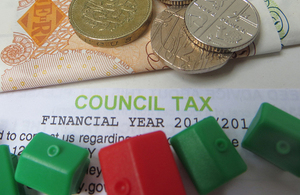Windfall taxes risk lasting damage to the UK’s offshore energy industry, warns Offshore Energies UK

A windfall tax risks reduced energy security, higher prices for consumers – and long-term damage to the UK’s offshore energy industry, Offshore Energies UK has warned the chancellor, Rishi Sunak.
The warning comes amid reports the UK government will shortly announce an increase in the tax applied to the UK’s offshore oil and gas sector – which is already the UK’s most highly taxed industry.
OEUK has warned that the tax will deter investors and destabilise the industry in the short-term – just when the global energy crisis makes stability vital. In the long-term, it warns, a windfall tax will also make it far harder for the UK to reach its target of net zero greenhouse gas emissions by 2050.
The concern in the industry was demonstrated this week when 31 organisations in the UK’s offshore energy supply chain wrote an open letter warning that speculation on the tax is undermining their attempts to stage a recovery from the pandemic and associated recession.
OEUK also warns that a windfall tax would risk destabilising a UK industry that supports 200,000 jobs and which has been planning £200 billion of energy investments by 2030.
Deirdre Michie, chief executive of OEUK, said: “This is an industry that thinks and plans long-term, so sudden new costs, like this proposed tax, will disrupt planning and investment and, above all undermine investor confidence.
“The reality is that we are already the UK’s most highly taxed industry. UK oil and gas operators pay 40% tax on their offshore profits.
“That means we are already contributing hugely under the existing regime. The Office for Budget Responsibility predicts that our operators will pay over £7.8bn to the Exchequer this financial year. That is 20 times higher than the sector’s tax payments two years ago and equates to £279 per UK household.
“The key point here is that we are actually very proud to pay our taxes and support the UK government and consumers. The problem is when new taxes are imposed suddenly and without consultation.
“In particular it pushes up the cost of borrowing for new projects, making it more difficult to raise the money needed to maintain existing energy supplies and build the low carbon energy systems of the future.
“The UK offshore industry needs a stable and predictable regime. A windfall tax may not affect projects already under way – but is likely to deter investments under consideration, for which funds have yet to be committed.
“The result would be a decline in oil and gas production in years ahead – just when the UK most needs reliable sources of energy.”




